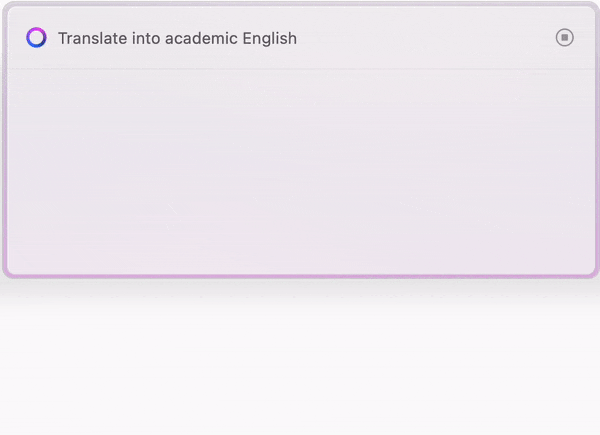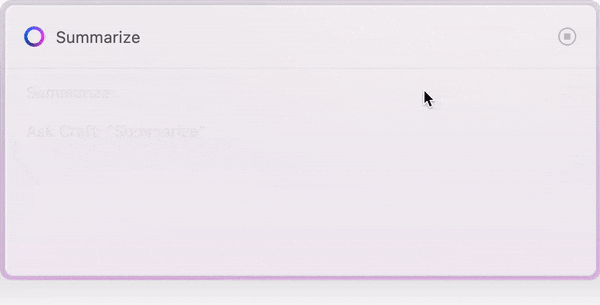We launched our new AI Assistant 2 weeks ago and we've already started to see some very creative ways that people are using it. The possibilities are almost endless, but here are some of our favorites we've seen from around the web:
1. Creating emails that summarize content

Whether you’re taking meeting notes to share with your team, or writing an article to share with your newsletter subscribers, it’s really useful to be able to adapt content to make it usable in other mediums. Marty Kearns, from Net Centric Campaigns, explained in the Craft community how he's been using the Craft Assistant to adapt content into an email that's ready to share.
According to his instructions, you can go to any page of your Craft space, enable the assistant, and ask it to “Write an email to share this content”. The result is a well-worded email summary of the content that’s virtually ready to send!
2. Writing more inclusively
Elias, from our Slack community, spotted that the AI Assistant could be used to help write things more inclusively. For example, in French, things are typically written in masculine form as the default for neutral. The AI assistant handled it with ease converting all masculine forms into a neutral form instead.
3. Translating into academic English

A lot of traditional online translation tools do a great job at choosing the right words to translate the input text, but they often fall short when it comes to the context of the translation. If you’re preparing international content it’s vital you also consider the context to ensure it’s received as intended. To avoid falling into this trap Andrea Faggion, a researcher from Brazil, asked the Craft Assistant to step in and help translate Brazilian Portuguese into Academic English with quite astonishing results!
4. Creating and explaining code blocks
Marcus Vaitschulis, a Computer Science student from Germany, discovered that the Craft AI Assistant was useful for not only generating basic code but also explaining the content of code blocks; perfect for providing context to non-technical people.
5. Summarizing transcripts from Zoom/Otter

Anyone who’s ever had to work with transcripts knows that in their raw form they’re long and messy resources which can take a long time to wade through and pull useful content from. Enter Craft’s AI Assistant. Marty Kearns discovered that our AI Assistant could easily master summarizing transcripts to make them far more readable and digestible.
6. Outlining book notes

Many of our customers use Craft to compile book notes or research. Book notes, often generated automatically using Kindle Highlights or apps like Readwise, result in long, choppy pieces of content which require significant editing to be useful or readable again in future. Gary Meacher, an assistant professor at Quincy University, showed how useful the Craft AI Assistant was in generating a summary and outline of book-notes.
Just for fun:
There were also a lot of people who putting the Craft AI Assistant’s poetry skills to the test. Here are the ones we enjoyed the most:
1. An ode to bananas
Daniel, front-end developer and apparently banana-lover, was one of the first to share this masterpiece the Craft Assistant had written about bananas:

A few days later, he tried again and this time the AI Assistant even added some rhyme into the piece:

2. A poem about SEO
Emily, an SEO Writer, shared on Twitter this poem she asked the Craft Assistant to compose. It’s hard not to be impressed with the result:

3. Poems in Sicilian
Nica, a member of the Craft community, decided to explore how efficient Craft Assistant would be at generating poetry in Sicilian; a language native to Sicily, Italy. The results were particularly impressive since Sicilian has a relatively small number of speakers worldwide (approximately 4.7 million vs 67 million Italian speakers).



